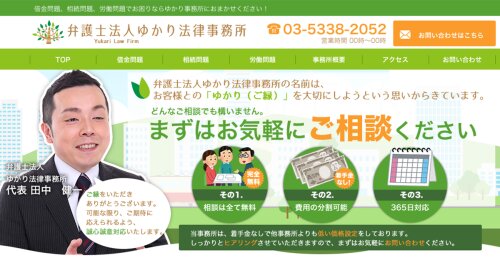Best Whistleblower & Qui Tam Lawyers in Tokyo
Share your needs with us, get contacted by law firms.
Free. Takes 2 min.
List of the best lawyers in Tokyo, Japan
About Whistleblower & Qui Tam Law in Tokyo, Japan
In Tokyo, Japan, Whistleblower and Qui Tam laws are designed to protect individuals who expose wrongdoing, fraud, or illegal activities within organizations. These laws encourage employees and other insiders to speak out by offering legal protections against retaliation and, in some cases, financial rewards for those whose disclosures lead to the recovery of government funds. While Qui Tam actions, as understood in some jurisdictions involving financial incentives for whistleblowers, are not as common in Japan, the country has robust mechanisms for protecting whistleblowers and promoting transparency and accountability in both public and private sectors.
Why You May Need a Lawyer
Seeking legal advice in whistleblower and Qui Tam cases in Tokyo is crucial due to the complexity of the legal framework and the potential risks involved in exposing wrongdoing. Common situations where legal assistance might be necessary include negotiating rewards, understanding the scope of protections against retaliation, ensuring confidentiality, and navigating the process of making a disclosure to government authorities or through legal proceedings. A skilled lawyer can provide invaluable guidance on these issues and help secure the best possible outcome for the whistleblower.
Local Laws Overview
Several key pieces of legislation provide the framework for whistleblower protections in Tokyo, Japan. These include the Whistleblower Protection Act, which safeguards employees who report public interest violations from workplace retaliation. It covers a wide range of sectors and identifies specific authorities to which disclosures can be safely made. Additionally, various industry-specific regulations may offer additional protections or reporting mechanisms. It is also important to note that Japanese cultural attitudes towards whistleblowing can influence the process and outcomes, making legal guidance even more critical.
Frequently Asked Questions
What types of wrongdoing can I report?
Violations of law, financial fraud, public safety threats, environmental hazards, and corruption are examples of wrongdoing that can be reported under whistleblower laws in Tokyo.
Will I receive a reward for reporting wrongdoing?
While Japan's whistleblower system does not widely offer financial rewards akin to Qui Tam actions in other jurisdictions, reporting can lead to corrective action and, in indirect ways, potentially positive outcomes for the whistleblower.
How are whistleblowers protected from retaliation?
The Whistleblower Protection Act and other related laws offer safeguards against dismissal, demotion, salary reduction, and other forms of employer retaliation.
Can I report anonymously?
Yes, anonymous reporting is possible, though it may affect the ability to follow up on your report or offer you full legal protections.
What should I do if I face retaliation?
If you face retaliation after whistleblowing, you should seek legal advice immediately to protect your rights and explore possible remedies.
How do I choose a lawyer for my case?
Look for a lawyer with specific experience in whistleblower and Qui Tam cases, ideally someone familiar with the public and private sectors in Japan.
Is there a time limit for reporting wrongdoing?
Yes, limitations periods apply, but they vary depending on the nature of the violation. It's important to seek legal advice promptly to ensure timely reporting.
Can I report wrongdoing done by a government official?
Yes, government officials are not exempt from investigation and prosecution for wrongdoing reported by whistleblowers.
What is the difference between whistleblowing and gossip?
Whistleblowing involves reporting genuine concerns of wrongdoing or illegal activities based on evidence, whereas gossip is sharing unverified information that may be harmful or untrue.
Can whistleblowers be compensated for their losses?
In cases of retaliation or other harm suffered as a result of whistleblowing, legal actions may result in compensation for the whistleblower.
Additional Resources
Individuals looking for legal advice on whistleblower and Qui Tam issues in Tokyo can consult resources like the Tokyo Bar Association, which offers legal consultations and possibly referrals to experienced lawyers. The Consumer Affairs Agency and the Ministry of Economy, Trade and Industry also provide guidance and support for whistleblowers reporting certain types of violations.
Next Steps
If you believe you need legal assistance with a whistleblower or Qui Tam issue, the first step is to document the wrongdoing thoroughly and securely. Next, consult a legal professional specializing in whistleblower law to understand your rights and the best course of action. They can help navigate the complex legal landscape, maintain confidentiality, and ensure you receive any protections and remedies under the law.
Lawzana helps you find the best lawyers and law firms in Tokyo through a curated and pre-screened list of qualified legal professionals. Our platform offers rankings and detailed profiles of attorneys and law firms, allowing you to compare based on practice areas, including Whistleblower & Qui Tam, experience, and client feedback.
Each profile includes a description of the firm's areas of practice, client reviews, team members and partners, year of establishment, spoken languages, office locations, contact information, social media presence, and any published articles or resources. Most firms on our platform speak English and are experienced in both local and international legal matters.
Get a quote from top-rated law firms in Tokyo, Japan — quickly, securely, and without unnecessary hassle.
Disclaimer:
The information provided on this page is for general informational purposes only and does not constitute legal advice. While we strive to ensure the accuracy and relevance of the content, legal information may change over time, and interpretations of the law can vary. You should always consult with a qualified legal professional for advice specific to your situation.
We disclaim all liability for actions taken or not taken based on the content of this page. If you believe any information is incorrect or outdated, please contact us, and we will review and update it where appropriate.












